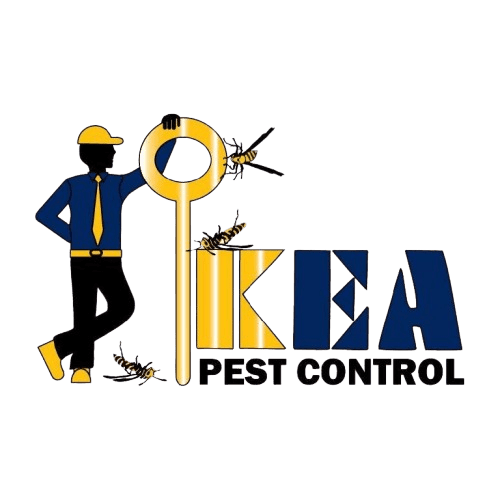How to Identify and Prevent Pavement Ant Infestations in Connecticut

Posted May 12, 2025
Pavement Ants in Connecticut: Behavior, Nesting, and How to Prevent Infestations
What Are Pavement Ants?
Pavement ants (Tetramorium immigrans) are tiny, dark brown to black ants, about 1/8 inch long. They're named for their tendency to nest in soil under pavement, driveways, foundations, sidewalks, and stones. Unlike carpenter ants, pavement ants don’t chew wood, but their colonies can grow large enough to become a nuisance indoors and out.
Where Do Pavement Ants Nest?
Pavement ants prefer to nest:
- Under concrete slabs
- In soil cracks along sidewalks and driveways
- Beneath stones or pavers
- Along foundation walls
- Occasionally inside wall voids and insulation
They excavate soil and bring it to the surface, forming small piles of dirt at entry points—often seen near baseboards or expansion joints.
How Pavement Ants Forage
Pavement ants are nocturnal foragers and rely on scent trails to find food. Workers travel long distances (relative to their size) to:
- Seek sugary substances (syrup, honey, soda)
- Feed on protein-rich items (meats, pet food, grease)
- Raid kitchens, pantries, and garbage bins
Their trails often lead from the soil into homes through foundation cracks, utility lines, and door thresholds.Explore our guide on preventative pest control to keep ants and other pests out before they start.
Explore our guide on preventative pest control to keep ants and other pests out before they start
Seasonal Activity
Pavement ants are most active from late spring to early fall. In Connecticut:
- April – June: Colonies become active and begin foraging.
- Mid-summer (July): Swarming season for mating; you may see flying ants indoors.
- Fall: Activity slows down as temperatures drop.
- Winter: Colonies go dormant unless they’ve established nests inside warm structures.
Damage and Concerns
While pavement ants don’t damage wood or pose health threats like some pests, they can:
- Contaminate food
- Create small dirt mounds in homes
- Compete with native ants
- Occasionally cause mild bites or stings
They can be especially problematic in kitchens, medical facilities, or office buildings where sanitation is critical.
📞 Have ants in your home or business? Contact KEA Pest Control today for expert inspection and treatment.
Pavement Ant Control and Prevention
- Seal Cracks and Gaps: Use caulk around windows, doors, and the foundation.
- Keep Surfaces Clean: Clean crumbs and spills, and store food properly.
- Reduce Moisture: Fix leaky spigots and eliminate water near the foundation.
- Remove Debris: Keep mulch, stones, and leaves away from the home’s perimeter.
- Hire a Professional: Ants may appear minor, but they often require targeted baiting and residual treatments to control at the colony level.
Discover our eco-conscious approach with green pest control options .
FAQ About Pavement Ants
Q: Are pavement ants harmful?
A: They’re mainly a nuisance, but their presence in kitchens and pantries can lead to food contamination.
Q: Why do pavement ants keep coming back?
A: Without treating the source nest and eliminating scent trails, ants will return even after cleaning or spraying.
Q: Do pavement ants live indoors?
A: Yes. In colder months, they can nest in wall voids, under tiles, and near heating systems.
Q: What’s the best way to treat pavement ants?
A: Baiting is often more effective than sprays. Professionals use targeted baits that ants carry back to the nest.
Q: Are pavement ants active year-round?
A: Outdoors, they’re mostly active in warmer months. Indoors, they may remain active all year if in a heated space.
Conclusion
Pavement ants are persistent pests that take advantage of small gaps in your home’s defenses. With a combination of sanitation, exclusion, and expert pest control, you can protect your property from infestations.
Related Connecticut Pest Control Services
- Rodent Control
https://keapestcontrol.com/services/pest-control/rodent-control-150478216 - Ant Control
https://keapestcontrol.com/services/pest-control/ant-control-150478218 - Stinging Insect Control
https://keapestcontrol.com/services/pest-control/stinging-insect-control-150529283 - General Pest Control
https://keapestcontrol.com/services/pest-control-service/general-pest-control-east-granby-ct-150599331 - Pest Prevention Programs
https://keapestcontrol.com/services/pest-control-service/pest-prevention-east-granby-ct-150599398
Contact Us
Have Questions? We’re Here to Help!
If you need more information about our services or have specific pest concerns, we’re just a click away. Contact us today with any questions or to learn how KEA Pest Control can help keep your home or business pest-free!

